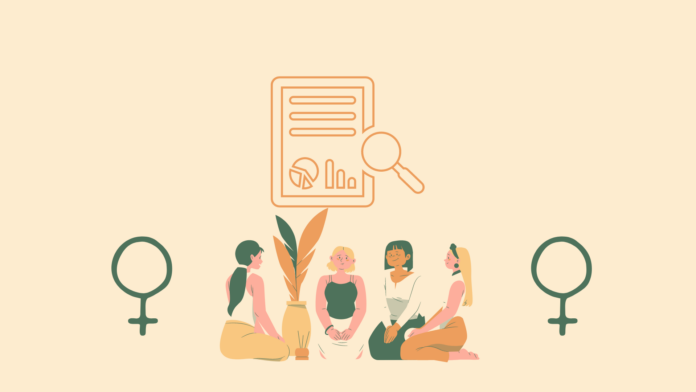
By Caitlyn Beebe | Reporter
Humanities professors showcased how digital research tools are helping them tell women’s stories on Wednesday at a panel event titled “Discovering DH: Honoring Women’s Stories.”
Dr. Mandy McMichael, associate director of ministry guidance, presented her research on the 33 founding mothers of Baptist women in ministry. She has interviewed over 80 women in church ministry, and she said Digital Humanities techniques helped her explore and visualize themes and word associations across hours of transcripts.
For example, McMichael said a data-driven approach enabled her to analyze the topic of mentorship.
“It wasn’t something that I went into the interviews necessarily expecting to find,” McMichael said. “And so, the number of them that have talked about [mentorship] as important to them, … I can show, ‘Here’s how many.'”
McMichael said Digital Humanities techniques help her engage not only her students but also the public, and she hopes her research can become a resource for churches.
“Digital Humanities becomes a way for a wider audience to engage with the scholarship related to Baptist women in ministry,” McMichael said.
Dr. Sarah Walden, associate professor in the Baylor Interdisciplinary Core, presented her research on maternal failure humor on social media platforms.
“You can see mothers creating communities online around shared funny experiences, but you also see varying degrees of social and cultural critiques about why is it mothers feel like they’re failing in these areas,” Walden said.
Using tools like Power BI and NCapture, Walden analyzed social media posts during the early stages of the COVID-19 pandemic. In her presentation, she recounted how mothers grappled with the sudden onset of the pandemic and the continuing challenges of homeschooling and online learning.
“You can design ways to search that text and potentially find patterns of themes or responses to various events … that you wouldn’t see necessarily with the naked eye,” Walden said.
Dr. Heidi Hornik, professor and chair of art and art history, presented her research on Artemisia Gentileschi — a 17th-century Italian artist. Hornik and her students used technology to assess the similarities and differences between Gentileschi’s paintings and the works of those who preceded her and followed her.
Dr. Stephanie Boddie, associate professor in the Diana R. Garland School of Social Work, highlighted the stories of the women who led the civil rights movement and traced connections among music and Black Baptist churches.
Dr. Leslie Hahner, professor of communication studies, explored themes of righteous anger, directed critique and faith in the #ChurchToo movement on TikTok.
“All five of us that are presenting are in different areas of campus, but we’re all finding ways to use these tools,” McMichael said.
Through University Libraries, students and faculty can take the self-paced Data Scholar Program to learn how to use digital scholarship in their research.





